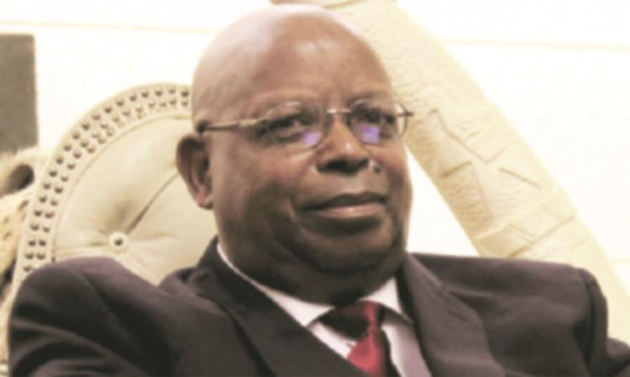‘Govt should prioritise investment reforms’

Conrad Mwanawashe Business Reporter
GOVERNMENT should prioritise reform initiatives that will ensure economic growth as well as attract both domestic and foreign direct investment, the Speaker of Parliament Advocate Jacob Mudenda has said.
Advocate Mudenda was addressing the post budget seminar for Parliamentarians yesterday.
He said the reform initiatives should include urgent rationalisation of the public service to contain the wage bill; accelerating the pursuance of Public Private Partnerships; leveraging remittances from the Diaspora in a quid pro quo manner of guaranteed movements of those remittances in and outside Zimbabwe.
The reform agenda should also include restructuring of parastatals and State-owned enterprises to make them profitable; creating lines of credit for the private sector and providing support to SMEs through off-shore financing; support social services by availing resources for education and health in partnership with the private sector and prioritising rural development through ring fencing resources to the Rural Electrification Programme, for A1 and A2 farmers.
“Such initiatives include leveraging the Mining Sector through channelling resources into exploration, concluding the Diamond Act and other mining legislation, pursuing a mining model based on high value and high impact. In addition, there is need to formalise the informal gold mining sector to curb illicit gold selling,” Advocate Mudenda said.
He said formalising artisanal miners will add more than 100 tonnes of gold to the fiscus while it is also critical to finalise the law on social dialogue, the Tripartite Negotiating Forum to strengthen co-operation between labour, business and Government.
Adv Mudenda also emphasised the need for parastatal reforms saying lawmakers should push for good corporate governance and come up with ways of stopping new ministers from firing “performing” boards of directors and appointing “their own crew”.
“Each time there is a change of ministers, board members no matter how good they have been, are kicked out and the minister brings his own crew,” Adv Mudenda said to applause from the legislators.
“Is that what Parliament wants? Is that Zimbabweans want? Stand up against such practices,” he added.
Taxation reform is another imperative which would expand the tax base and contribute to growing the national cake through domestic resource mobilisation.
The $4 billion budget proposed by the Minister of Finance and
economic Development forecasts a 2,7 percent GDP growth in 2016
up from 1,5 percent expected this year.
Advocate Mudenda said recurrent expenditure is forecast at 92,1 percent of the budget leaving only about 8 percent for capital expenditure yet an ideal situation would require a ratio of 60 percent to 40 percent respectively.
“A scenario of this nature does not positively respond to our call to improve the Ease of Doing Business in order to attract foreign direct investment.
“For instance, Zambia had a public wage bill of 10,1 percent of GDP in 2014, while in Kenya it is at 10,2 percent of GDP. Ideally the wage bill threshold should be maintained at a level of no more than 10 percent of GDP.
“The public sector wage bill is, therefore, compromising fiscal sustainability and jeopardizing capital growth by generating excessive deficits and crowding out growth-enhancing public investments,” said Adv Mudenda.
Presenting a paper at the
same seminar the director of Labour and Economic Development Research Institute of Zimbabwe,
Dr Godfrey Kanyenze said it may
be “heroic” to achieve the 2,7 percent growth target forecast for next year.
He said Zimbabwe is depending mostly on the export of primary products and is therefore, exposed to external factors.
The fall of commodity prices means that Zimbabwe’s exports will be lower next year and this may affect the country’s economic performance.
The seminar was held to foster a deeper appreciation of the policy measures proposed in the 2016 national budget; to assess the impact of the proposed budgetary measures on the key sectors of the economy and on the Ease of Doing Business in Zimbabwe.











Comments